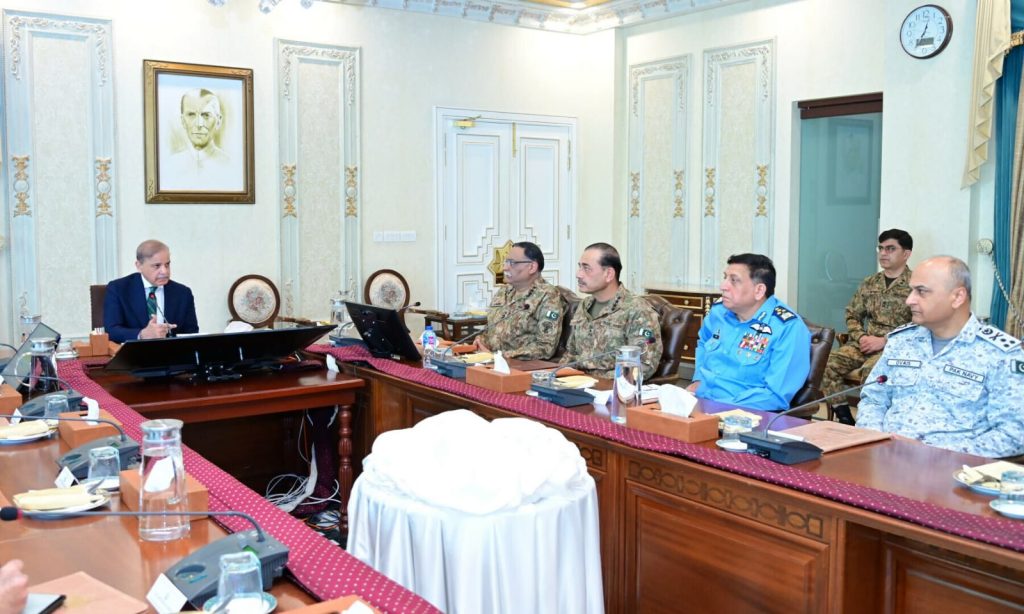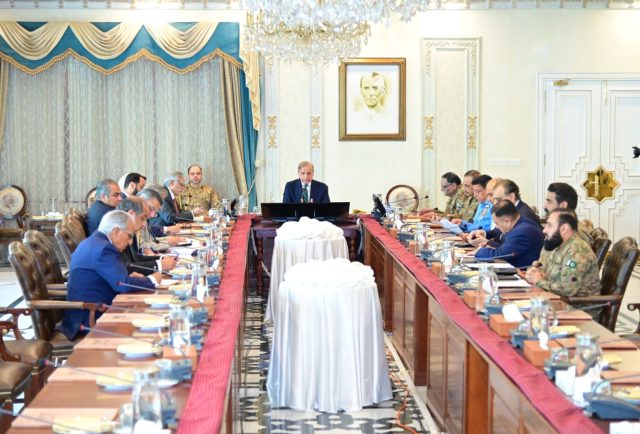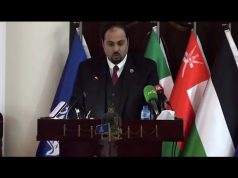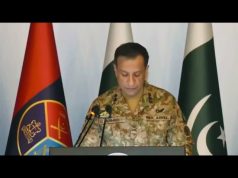ISLAMABAD, Thursday, April, 24, 2025 (WNP): Pakistan’s top civil and military leadership convened on Thursday under the chairmanship of Prime Minister Muhammad Shehbaz Sharif to discuss national security and regional developments in a strongly-worded response to India’s actions following a deadly attack in Indian Illegally Occupied Jammu and Kashmir (IIOJK).
The National Security Committee (NSC), the country’s principal decision-making body on security matters, met in the aftermath of the April 22 attack in the Pahalgam area of Anantnag District. Expressing concern over the loss of lives, the NSC reviewed New Delhi’s measures announced on April 23, terming them “unilateral, unjust, politically motivated, extremely irresponsible, and devoid of legal merit.”

The committee reiterated that Kashmir remains an unresolved international dispute, recognized by several United Nations resolutions, and reaffirmed Pakistan’s unwavering support for the Kashmiri people’s right to self-determination.
The statement issued by the Prime Minister’s Office accused India of systemic repression in IIOJK, including the abrogation of statehood, demographic engineering, and state-sponsored persecution of minorities—particularly Muslims. It highlighted recent Indian efforts, such as the forced passage of the Waqf Bill, as further evidence of this marginalization.
The NSC warned India against exploiting the Pahalgam incident for political gain, emphasizing that the protection of civilians is New Delhi’s responsibility. It rejected any attempt to link the incident to Pakistan without credible investigation or verifiable evidence, calling such accusations “frivolous and illogical.”
Pakistan, the statement said, condemns terrorism in all forms and has itself borne immense human and economic losses in the global fight against terrorism. It accused India of attempting to destabilize Pakistan’s eastern borders to distract from its own failures and ongoing rights violations in Kashmir.
The NSC highlighted Pakistan’s possession of “incontrovertible evidence” of Indian-sponsored terrorism, including the confession of Indian Navy officer Commander Kulbhushan Jadhav. It also condemned the “implicit threat” in India’s April 23 statement, warning the international community to remain alert to India’s extraterritorial assassinations and violations of international law.
Major diplomatic, security, and economic actions announced
In response, the committee announced a series of retaliatory measures:
Indus Waters Treaty: Pakistan rejected India’s announcement to suspend the Indus Waters Treaty, calling it a violation of a binding international agreement. Islamabad warned that any attempt to obstruct its water rights would be considered an act of war, to be met with a full-spectrum national response.
Bilateral Agreements: Citing India’s “reckless” behavior, the NSC decided to suspend all bilateral agreements, including the Simla Agreement, until India ceases its alleged support for terrorism and adheres to international and UN obligations.
Diplomatic Measures: Pakistan declared Indian Defence, Naval, and Air Advisors in Islamabad persona non grata, ordering their expulsion by April 30. The Indian High Commission’s staff will be reduced to 30 diplomats and personnel. All SAARC Visa Exemption Scheme (SVES) visas issued to Indian nationals are cancelled, except for Sikh religious pilgrims.
Border and Transit Closures: The Wagah border crossing is to be shut immediately, with cross-border transit suspended. Indian nationals currently in Pakistan under SVES must exit within 48 hours, excluding Sikh pilgrims.
Airspace and Trade Restrictions: Pakistan’s airspace has been closed to all Indian-owned or operated airlines. All trade with India, including transit via third countries through Pakistan, is suspended with immediate effect.
The NSC asserted that Pakistan’s armed forces are fully prepared to defend the nation’s sovereignty and territorial integrity. It recalled Pakistan’s “measured yet resolute” military response to India’s 2019 incursion as a testament to this readiness.
Concluding the meeting, the NSC said India’s “belligerent posture” reaffirms the rationale behind the Two-Nation Theory and echoes the foresight of Quaid-e-Azam Muhammad Ali Jinnah, as enshrined in the 1940 Pakistan Resolution.
The Pakistani leadership reaffirmed its commitment to peace but warned that the country will not compromise on its sovereignty, security, or national dignity.




